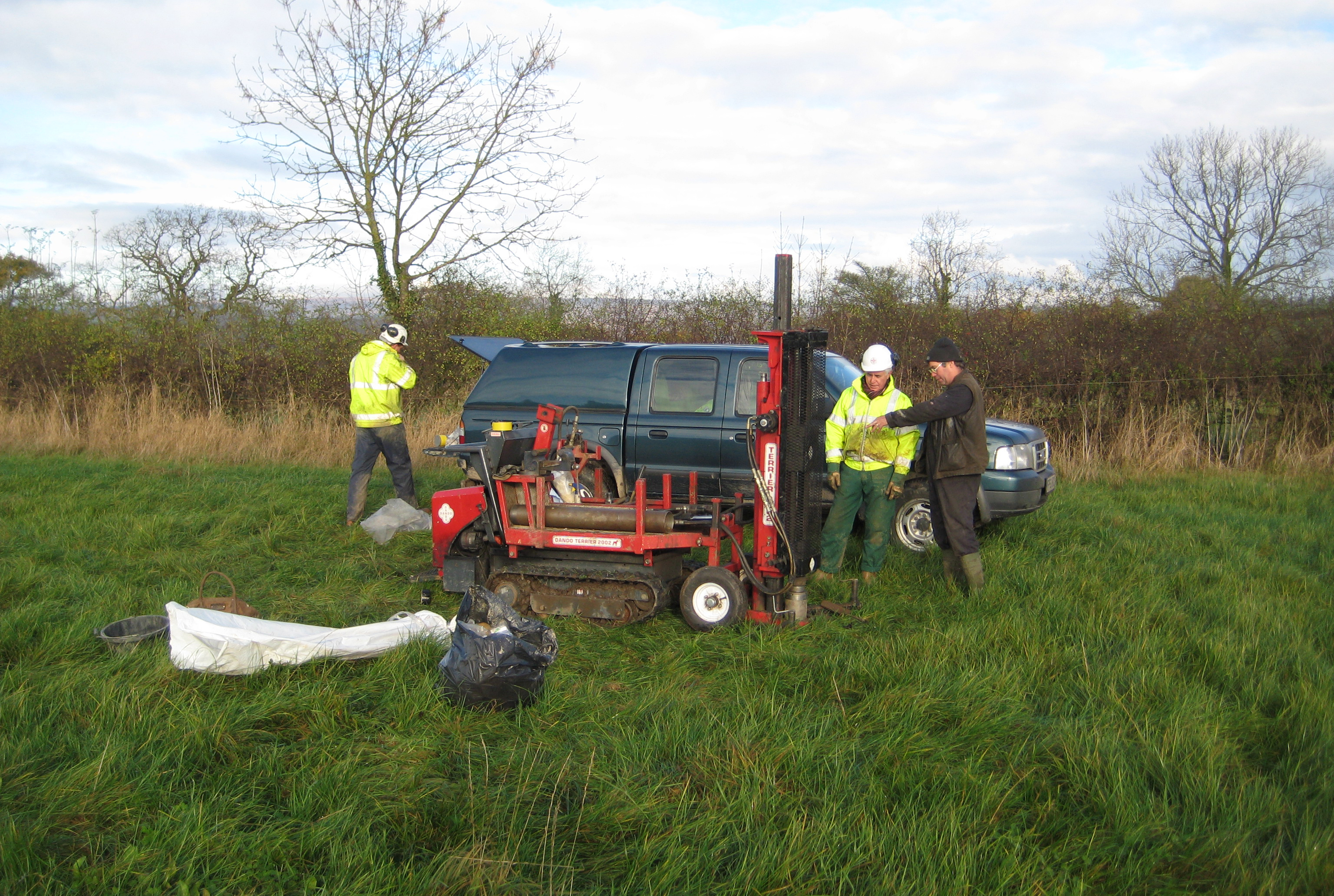Along with partners from the former Public Health England (now the UK Health Security Agency) and the universities of Birmingham, Bristol, Manchester, Royal Holloway and York, BGS carried out a programme of science-based environmental monitoring in the Vale of Pickering, North Yorkshire.

Dando drilling rig in the Vale of Pickering. BGS © UKRI.
The investigation was initiated as a result of planning permission being granted in 2016 to oil and gas operator, Third Energy, to explore for shale gas by high-volume hydraulic fracturing at its Kirby Misperton site. Subsequent failure to obtain final government consent and the imposition of the 2019 moratorium on hydraulic fracturing for exploration in England meant that no hydraulic fracturing operations were ever undertaken at the site. In early 2020, the site operator indicated an intention to drop plans for shale-gas exploration in favour of alternative subsurface energy developments.
The monitoring was independent of the hydrocarbon industry and regulators to ensure evidence-based and impartial scientific outputs.
Monitoring
The environmental monitoring programme was initiated in response to widespread public concern over the potential environmental impacts of new shale-gas exploration and was planned to continue through operations should they take place. The monitoring was separate from that conducted by the site operator.
The activities included:
- monitoring the quality of groundwater and surface water using an established network of monitoring sites
- monitoring groundwater quality and water levels in newly established boreholes drilled into the local shallow aquifer
- conducting time-integrated indoor and outdoor measurements of radon in air
- conducting real-time monitoring of seismicity at six surface sites and four sites installed in new boreholes
- conducting real-time monitoring of atmospheric greenhouse gases and indicators of air quality at and close to the former proposed exploration site (KMA)
- streaming of real-time data to the BGS website
- evaluating soil gas compositions from surveys at selected sites
- interpretation of satellite data for assessment of ground motion
- continuing an analogous environmental monitoring programme around a site of hydrocarbon exploration in Lancashire
Establishment of the environmental baseline
While the original remit of the project to establish a baseline ahead of shale-gas exploration no longer applies in the area, the project served to provide robust environmental data for air, water, ground motion and soil. This helped provide insights into natural, urban and industrial processes that affect air and water quality including:
- deep groundwater
- monitoring nearfield natural and induced seismic events
- testing new and developing technologies for monitoring (including in real time)
- insights into protocols and practice for sound environmental monitoring and data evaluation
Contact
Please contact BGS enquiries (enquiries@bgs.ac.uk) for further information.

